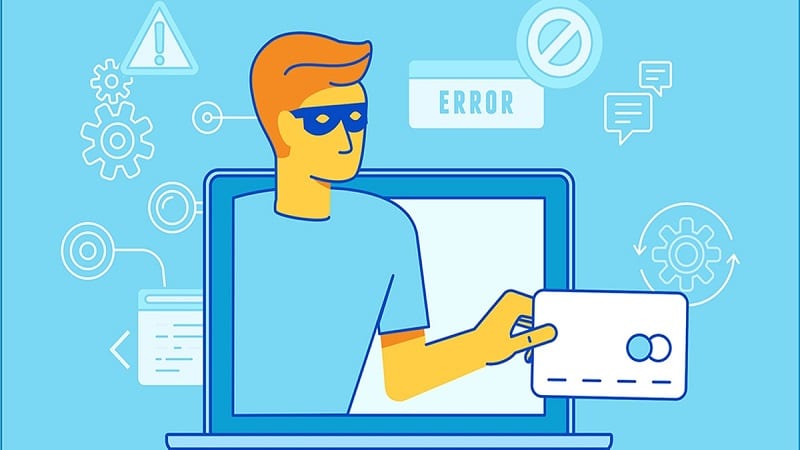
Internet scams have become so common that nowadays it's hard not to know a victim, maybe you've even fallen for one of them.
This often happens because criminals do not stop renewing their strategies to induce people to hand over their data, such as CPF, telephone, card number and passwords.
Since the beginning of the pandemic, throughout 2020, there has been a 400% increase in a modality known as phishing, where the scammer pretends to be a person or company to get user data , according to security company NordVPN.
Approaches are usually through convincing and apparently harmless messages. Typically, scammers pose as a friend, family member, or a company clerk. That's why it's so important to be aware of requests for information or tampered links sent.
Knowing the methods used to deceive people, applications and digital accounts created their own protection mechanisms. But in addition to these features, it is essential that users also take care on a daily basis to contribute even more to the efficiency of security functions.
Here's how to stay away from internet scam attempts.
6 tips to protect your data from internet scams
To avoid falling for an internet scam, it is important to be aware of situations where extra attention is needed, such as a tempting promotion that is actually fake or someone posing as a friend on WhatsApp and asking for money.
Learn about the most common examples of manipulation and best practices to increase your safety.
1. Do not reveal or share personal data

Companies do not ask for your confidential data such as your card number, expiration date, security code and passwords. If this happens, look for your financial institution through the contacts disclosed in the official channels. For instance, if you want to apply for credit in Finland, you can do so in an easy 3-minute online application process. All you need is a bank ID. Besides, you can find look them up through their displayed contact information.
Special care should always be with passwords. Don't save them anywhere, whether on your cell phone or computer, it's important to memorize them. In addition, it is recommended that there is a periodic exchange and, preferably, not repeated in several online services, especially the most important ones.
No pet names, birthdays or other information that can be discovered by other people. Always try to make more complex choices, with numbers, letters and special characters. Another tip is to use the second authentication factor, which increases security in all applications, ensuring that another device of yours will always be activated to confirm access.
2. Never click on unknown links
It is common for internet scams to go viral through links sent by email and social networks. There are several approaches that seem real, such as unmissable discounts, account blocking alerts and seductive proposals for an easy loan or debt settlement.
So, even if it seems true, always check the origin of the link, regardless of whether it was shared by a known person, after all, they may have been a victim and still not have knowledge.
Remember: secure sites have a padlock right at the beginning of the address bar and are followed by the https:// code. And when in doubt, seek information on the official channels of the companies.
3. Check if the store exists before buying
Before making payment in online stores, carefully review the website. If it's an unknown brand, do some research to find out what other customers say.
In cases of well-known stores, criminals can also create pages very similar to the original ones. So don't forget to always check the website link. Another analysis criterion is the commercial data disclosed, such as address, telephone number, CNPJ and corporate name. Stores that omit this information should be viewed with suspicion.
And if you're going to use apps, try to download them from the official stores for iOS and Android systems, so you can protect yourself from fake copies or possible social engineering to hack your account.
4. Be careful about sharing on social networks

Social media can be a very useful tool for scammers. Depending on the information shared in a post, criminals can trace personal profiles and behavior.
In this way, with the data collected, it is possible to think of a more convincing attack to be used on a registration platform or a shopping site, for example. Fraudsters are adept at passing credibility, so it's hard to tell that this is an internet scam.
5. Enable 2-Step Verification on WhatsApp
Two-step verification on WhatsApp allows only you to release the app on any device. To do this, just go to the settings, select the “account” option, and then enable 2-step verification and set a password.
With this, you reduce the risk of having WhatsApp cloned and experiencing some known inconveniences, such as fraudsters asking your contacts for money on your behalf.
6. Use facial recognition to log in
Facial recognition to unlock your cell phone and the most important accesses increases your protection. Nowadays, applications from financial institutions and even WhatsApp rely on this security measure.
In this way, you make life even more difficult for scammers and prevent your data from falling into the wrong hands, if your cell phone is stolen, for example. Unlike passwords, even if complex, this feature is impossible to forge.






